In A Glass Cage (1987)
Directed by: Agusti Villaronga
Written by: Agusti Villaronga
Starring: David Sust, Gisela Echevarina, Gunter Mesner, Marisa Paredes
Once a week, for the next couple of months, Rewind is going to be looking at a selection of films from the company Cult Epics, a company which seems to be devoted to releasing films that other companies just wouldn’t dare to. Doc will be giving his honest opinion on what appear to be some of the wierdest and strangest films he will put into his DVD player. Beginning with, a very twisted thriller that deals with a very difficult subject. Exploitation or art? Read on……..
HCF REWIND NO.55. IN A GLASS CAGE AKA TRAS EL CRISTAL [Spain, 1987]
AVAILABLE ON BLU RAY AND DVD : From Cult Epics
RUNNING TIME: 112 mins
REVIEWED BY: Dr Lenera, Official HCF Critic
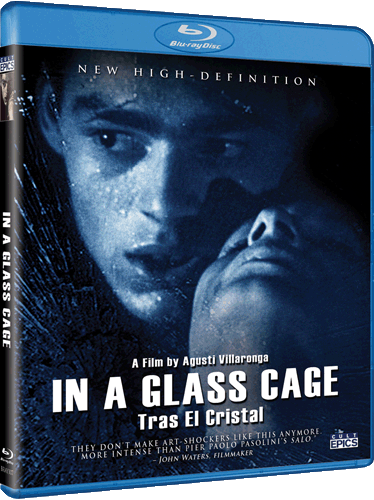
Klaus, a former Nazi German doctor who practiced horrific experiments with children during World War II, has continued torturing, killing, and then photographing the bodies of, young boys during his exile in a remote village in Catalonia. A young boy witnesses his latest murder and later steals incriminating writings and photographs of the doctor’s crimes. Klaus tries to commit suicide jumping from a tower, but he survives, though he is now unable to breathe on his own and is immobile, confined permanently in an iron lung to survive. Some years later, Klaus is being taken care of by his unhappy wife Griselda and their young daughter Rena in a large gloomy house in the country. A young man with a scarred face called Angelo shows up…..
I sometimes wonder if we know too much about films we are about to see these days. It used to be that TV, radio and magazines were our only major source of information about forthcoming cinema releases. Nowadays, the internet is such a constant source of rumour, speculation and the occasional fact about new movies that there are few surprises in store and quite often you find out more about a film than you want to. It’s a similar thing with home viewing, where years ago you were far more likely to hire out a video based on its cover than the fact you may have read a good review or too about it. So when I sat down to watch In A Glass Cage, I rather liked the fact that, until I read the description of it by Cult Epics, and thereby decided that it would one of the DVDs from them that I would view, I had actually never heard of it. I think I have a reasonable knowledge of film especially the ‘horror cult’ kind, but this one had just passed me by totally. All I knew, as I switched on the DVD, was the first third or so of the plot.
Now this film of course deals with a subject matter that many will feel is best off not being a subject for motion pictures, though I should tell you immediately that there are no explicit scenes of child torture or rape in it. Don’t get me wrong though, In A Glass Cage is still a very strong film which will take you to some very dark places. The opening scene sets the tone brilliantly. Klaus is looking at the body of a naked boy hanging, with the camera gradually revealing bloody bruises over is body. The mind becomes filled with all sorts of horrible ideas about what has taken place, and this film is really proof that what we are able to imagine is often far worse than what a filmmaker can out on a screen, though it doesn’t have any bones about killing children on screen, in scenes which are very uncomfortable to watch. The titles then show black and white shots of concentration camps, their victims and, sometimes, Klaus mingled in with them, giving a horrible reality and a very disturbing context to the story. This kind of stuff happened, for real.
I fact, you could say that the whole film is ‘uncomfortable’ to watch, but that would be doing a severe injustice to what is a thoroughly gripping psychological thriller, and certainly a film that didn’t deserve to have had its release so limited. Set mostly in one house, it is simply stunning visually, with cinematographer Jaume Peracaula painting wonderfully abstract images of light and dark, usually centred around blue and grey, reminding us, perhaps, of the uniform of Nazi soldiers. The way characters often seem to pass through bits of black helps create a really nightmarish atmosphere, while the camera likes to track around the house, often following people as they slowly move around. Quite a lot of the film consists of characters walking around looking for something, and yet the drawn out tension is brilliantly maintained. It all reminded me of Mario Bava and Dario Argento at their best, and even Lucio Fulci, though I wonder if the opening eye close up [the first of many] was intended to evoke Peeping Tom, what with the clicking sound, that could be a camera shutter, that is heard on the soundtrack!
A lengthy murder set piece, which goes on and on but never loses its focus, is up there with the very best giallo scenes even though the pay-off is not overly gory, though there is a nasty realism at play with the killer actually having trouble dispatching his prey for once. It’s something we don’t see often enough, though of course Alfred Hitchcock filmed the granddaddy of this kind of scene in Torn Curtain and there have been scattered instances since. Aurally the film is striking throughout. There is actually not much dialogue, with the emphasise more on Javier Navarette’s weird music which often seems to blur the distinction between score and sound effect with its menacing, nightmarish sound scapes, often consisting of just one long note which insidiously burrows its way into the subconscious. You’re in Hell in this film, and you’re never allowed to forget it.
In A Glass Cage is certainly not all style over content though; it’s a clever and detailed study of human evil, and not always from the character you may expect. There seem to be three stages of evil in this grim tale, represented by the three main characters; evil which has outlived itself and has dissipated, evil which is at its most destructive stage and just grows and grows, and, perhaps most disturbingly, evil which is dormant and will eventually manifest itself. I haven’t seen a film for ages which illustrates the corruptive nature of evil so well. Some may say that, all in all, it’s just a distant, artier cousin of those Nazi exploitation films that once seemed to dominate the Video Nasty list, but I think it’s more intelligent than that. Some of the most disturbing scenes involve Angelo simply reading Klaus’s diary to Klaus, where we are basically seeing three things simultaneously; Angelo reading out, and sometimes getting aroused by, the diary, Klaus trying not to be aroused himself, and our mind visualising the events described. Director Agusti Villaronga manipulates the viewer throughout, and I both loved it and hated it at the same time! All in all, the mark of a very fine filmmaker, in my opinion, and I think it’s criminal that censors throughout the world couldn’t see the skill and intelligence behind the film and just refused to release it.
As a whole, the sexual element is not as dominant as you might think though, and that is probably just as well, because even though I was ‘enjoying’ the film in the sense that is was gripping me, provoking intense emotional reactions, and making me think, seeing men rape young boys would not have been something I wanted to see and may well have made me hit the fast forward button! The performances in this movie are very strong, with Gisele Echevarina having perhaps the most complex role as the young girl Rena, but in some ways it’s Gunter Mesner who has the hardest part, because he is shut up in a glass cage for most of the film and cannot even move his head much. I didn’t really know what to expect with this picture, apart from the fact that it would be pretty gruelling, but I found it to be an astonishing, shattering watch…….even if I really felt like having a shower afterwards.
Rating: 









The Blu Ray and DVD release of In A Glass Cage from Cult Epics includes:
*restored High-Definition transfer
*Featurette on Agusti Villaronga
*Three short films by the director; Antas Mujer, Laberint, Al Mayurca
Check out Cult Epics’s site at

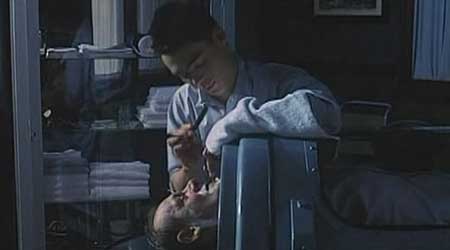
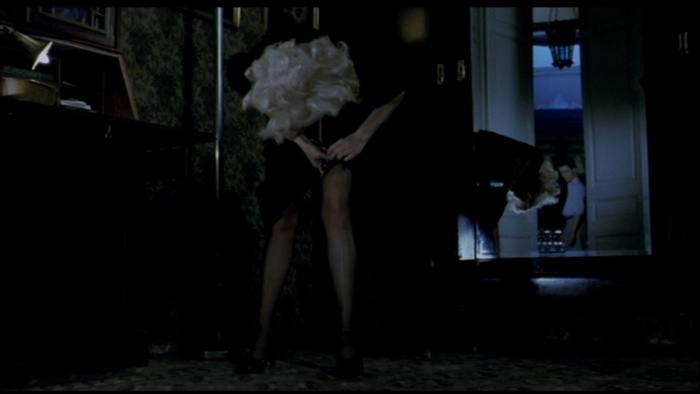

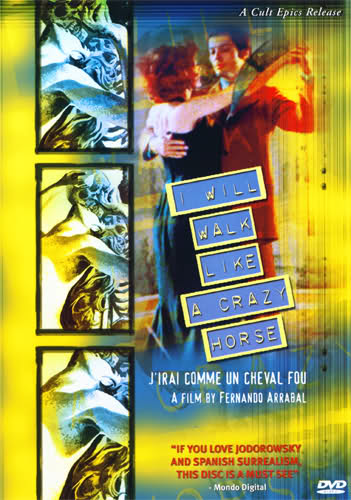
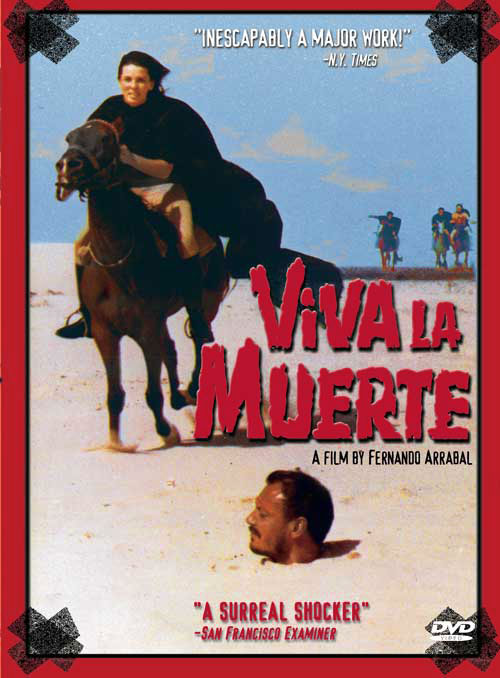
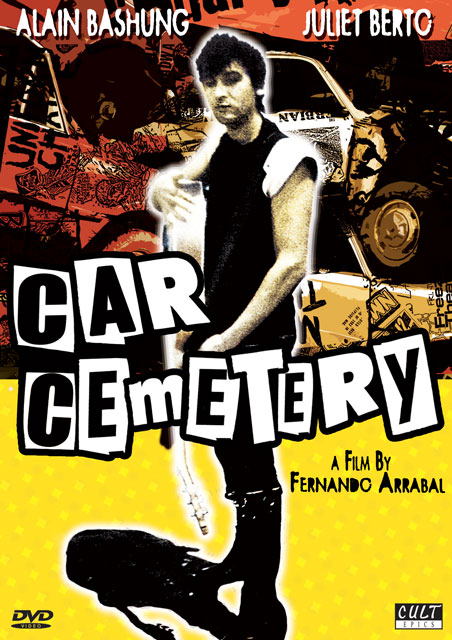
Be the first to comment